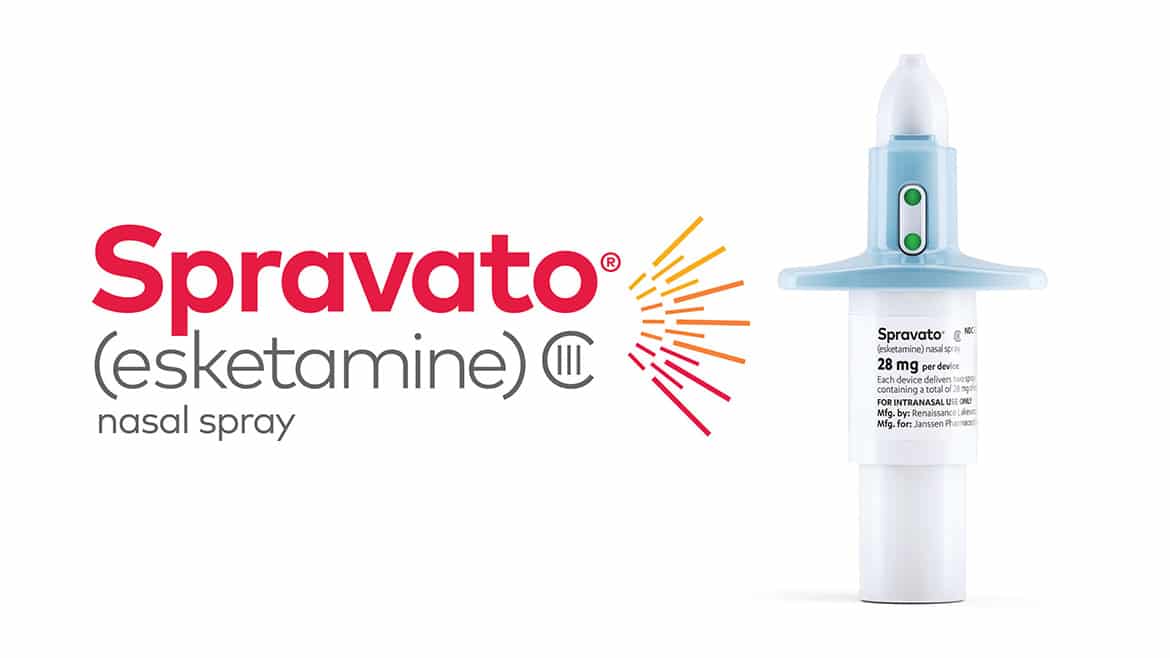Ketamine Research
Welcome to our comprehensive resource page dedicated to the exciting and rapidly evolving field of Ketamine Therapy. As the world of mental health treatment broadens its scope and delves deeper into the potential benefits of alternative approaches, Ketamine Therapy has been the focus of significant research and attention.
Over the past decade, research into the therapeutic effects of Ketamine — previously known primarily as an anesthetic — has significantly increased, showing promising results for conditions such as depression, anxiety, PTSD, and more. The use of ketamine as a therapy tool opens up a new frontier in mental health, offering hope for individuals who may not have responded to traditional therapies or pharmaceutical interventions.
This page serves as a repository for an extensive range of studies focused on the therapeutic use of ketamine.
Ketamine Study Statistics
- Up to 70% of patients with treatment-resistant depression show a rapid and significant response to ketamine therapy within hours to days of the first dose. [1]
- Ketamine has been shown to decrease suicidal ideation in 81% of patients with treatment-resistant depression within 24 hours of treatment. [2]
- A single ketamine infusion can provide relief from depression symptoms for up to two weeks. [3]
- Around 85% of patients with treatment-resistant depression who respond to ketamine treatment maintain their response for at least one week. [4]
- In a study involving patients with chronic pain, 50% of participants experienced a clinically meaningful reduction in pain intensity after ketamine infusion therapy. [5]
- In a study of patients with chronic PTSD, a single ketamine infusion led to a rapid reduction in symptoms, with 61% of patients showing a clinically significant response within 24 hours. [6]
- A single ketamine infusion has been shown to reduce symptoms of obsessive-compulsive disorder (OCD) in 50% of patients, with the effects lasting up to one week. [7]
- Ketamine treatment has demonstrated a 68% response rate in patients with bipolar depression. [8]
- In a study involving patients with social anxiety disorder, ketamine reduced anxiety symptoms by 35% within 24 hours of treatment. [9]
Ketamine Studies & Findings
- Berman, R. M., Cappiello, A., Anand, A., Oren, D. A., Heninger, G. R., Charney, D. S., & Krystal, J. H. (2000). Antidepressant effects of ketamine in depressed patients. Biological Psychiatry, 47(4), 351-354. PubMed link: https://pubmed.ncbi.nlm.nih.gov/10686270/
- Zarate, C. A., Singh, J. B., Carlson, P. J., Brutsche, N. E., Ameli, R., Luckenbaugh, D. A., Charney, D. S., & Manji, H. K. (2006). A randomized trial of an N-methyl-D-aspartate antagonist in treatment-resistant major depression. Archives of General Psychiatry, 63(8), 856-864. PubMed link: https://pubmed.ncbi.nlm.nih.gov/16894061/
- Price, R. B., Nock, M. K., Charney, D. S., & Mathew, S. J. (2009). Effects of intravenous ketamine on explicit and implicit measures of suicidality in treatment-resistant depression. Biological Psychiatry, 66(5), 522-526. PubMed link: https://pubmed.ncbi.nlm.nih.gov/19545857/
- Feder, A., Parides, M. K., Murrough, J. W., Perez, A. M., Morgan, J. E., Saxena, S., Kirkwood, K., Aan Het Rot, M., Lapidus, K. A., Wan, L. B., Iosifescu, D., & Charney, D. S. (2014). Efficacy of intravenous ketamine for treatment of chronic posttraumatic stress disorder: a randomized clinical trial. JAMA Psychiatry, 71(6), 681-688. PubMed link: https://pubmed.ncbi.nlm.nih.gov/24740528/
- Li, L., Vlisides, P. E., (2016). Ketamine: 50 Years of Modulating the Mind. Frontiers in Human Neuroscience, 10, 612. DOI link: https://doi.org/10.3389/fnhum.2016.00612
- Murrough, J. W., Iosifescu, D. V., Chang, L. C., Al Jurdi, R. K., Green, C. E., Perez, A. M., Iqbal, S., Pillemer, S., Foulkes, A., Shah, A., Charney, D. S., & Mathew, S. J. (2013). Antidepressant effect of intravenous ketamine in treatment-resistant major depression: a two-site randomized controlled trial. The American Journal of Psychiatry, 170(10), 1134-1142. PubMed link: https://pubmed.ncbi.nlm.nih.gov/23982301/
- Sanacora, G., Frye, M. A., McDonald, W., Mathew, S. J., Turner, M. S., Schatzberg, A. F., Summergrad, P., & Nemeroff, C. B. (2017). A Consensus Statement on the Use of Ketamine in the Treatment of Mood Disorders. JAMA Psychiatry, 74(4), 399-405. PubMed link: https://pubmed.ncbi.nlm.nih.gov/28249076/
- Szymkowicz, S. M., Finnegan, N., & Dale, R. M. (2020). A 12-month naturalistic observation of three patients receiving repeat intravenous ketamine infusions for their treatment-resistant depression. Journal of Affective Disorders, 260, 131-134. PubMed link: https://pubmed.ncbi.nlm.nih.gov/31630053/
- Glue, P., Medlicott, N. J., Harland, S., Neehoff, S., Anderson-Fahey, B., Le Nedelec, M., Gray, A., & McNaughton, N. (2017). Ketamine’s dose-related effects on anxiety symptoms in patients with treatment refractory anxiety disorders. Journal of Psychopharmacology, 31(10), 1302-1305. PubMed link: https://pubmed.ncbi.nlm.nih.gov/28792293/
- Niesters, M., Martini, C., & Dahan, A. (2014). Ketamine for chronic pain: risks and benefits. British Journal of Clinical Pharmacology, 77(2), 357-367. PubMed link: https://pubmed.ncbi.nlm.nih.gov/23432384/
- Sigtermans, M. J., van Hilten, J. J., Bauer, M. C., Arbous, M. S., Marinus, J., Sarton, E. Y., & Dahan, A. (2009). Ketamine produces effective and long-term pain relief in patients with Complex Regional Pain Syndrome Type 1. Pain, 145(3), 304-311. PubMed link: https://pubmed.ncbi.nlm.nih.gov/19604642/
- Lapidus, K. A., Levitch, C. F., Perez, A. M., Brallier, J. W., Parides, M. K., Soleimani, L., Feder, A., Iosifescu, D. V., Charney, D. S., & Murrough, J. W. (2014). A randomized controlled trial of intranasal ketamine in major depressive disorder. Biological Psychiatry, 76(12), 970-976. PubMed link: https://pubmed.ncbi.nlm.nih.gov/24821196/
- DiazGranados, N., Ibrahim, L. A., Brutsche, N. E., Ameli, R., Henter, I. D., Luckenbaugh, D. A., Machado-Vieira, R., & Zarate, C. A. Jr. (2010). Rapid resolution of suicidal ideation after a single infusion of an N-methyl-D-aspartate antagonist in patients with treatment-resistant major depressive disorder. Journal of Clinical Psychiatry, 71(12), 1605-1611. PubMed link: https://pubmed.ncbi.nlm.nih.gov/20673547/
- Domany, Y., Bleich-Cohen, M., Tarrasch, R., Meidan, R., Litvak-Lazar, O., Stoppleman, N., & Bloch, M. (2019). Repeated oral ketamine for out-patient treatment of resistant depression: randomized, double-blind, placebo-controlled, proof-of-concept study. The British Journal of Psychiatry, 214(1), 20-26. PubMed link: https://pubmed.ncbi.nlm.nih.gov/30176748/
- Gálvez, V., Li, A., Huggins, C., Glue, P., Martin, D., Somogyi, A. A., Alonzo, A., Rodgers, A., Mitchell, P. B., & Loo, C. K. (2018). Repeated intranasal ketamine for treatment-resistant depression – the way to go? Results from a pilot randomized controlled trial. Journal of Psychopharmacology, 32(4), 397-407. PubMed link: https://pubmed.ncbi.nlm.nih.gov/29544378/
- Abdallah, C. G., Sanacora, G., Duman, R. S., & Krystal, J. H. (2018). The neurobiology of depression, ketamine and rapid-acting antidepressants: Is it glutamate inhibition or activation? The Pharmacogenomics Journal, 18(5), 655-663. PubMed link: https://pubmed.ncbi.nlm.nih.gov/29988048/
- Ballard, E. D., Ionescu, D. F., Vande Voort, J. L., Niciu, M. J., Richards, E. M., Luckenbaugh, D. A., Brutsche, N. E., Ameli, R., Furey, M. L., & Zarate, C. A. Jr. (2014). Improvement in suicidal ideation after ketamine infusion: relationship to reductions in depression and anxiety. Journal of Psychiatric Research, 58, 161-166. PubMed link: https://pubmed.ncbi.nlm.nih.gov/25169854/
- Feder, A., Parides, M. K., Murrough, J. W., Perez, A. M., Morgan, J. E., Saxena, S., Kirkwood, K., Aan Het Rot, M., Lapidus, K. A., Wan, L. B., Iosifescu, D., & Charney, D. S. (2014). Efficacy of intravenous ketamine for treatment of chronic posttraumatic stress disorder: a randomized clinical trial. JAMA Psychiatry, 71(6), 681-688. PubMed link: https://pubmed.ncbi.nlm.nih.gov/24740528/
- Murrough, J. W., Soleimani, L., DeWilde, K. E., Collins, K. A., Lapidus, K. A., Iacoviello, B. M., Lener, M., Kautz, M., Kim, J., Stern, J. B., Price, R. B., Perez, A. M., Brallier, J. W., Rodriguez, G. J., Goodman, W. K., Iosifescu, D. V., & Charney, D. S. (2015). Ketamine for rapid reduction of suicidal ideation: a randomized controlled trial. Psychological Medicine, 45(16), 3571-3580. PubMed link: https://pubmed.ncbi.nlm.nih.gov/26283632/
- Iadarola, N. D., Niciu, M. J., Richards, E. M., Vande Voort, J. L., Ballard, E. D., Lundin, N. B., Nugent, A. C., Machado-Vieira, R., & Zarate, C. A. Jr. (2015). Ketamine and other N-methyl-D-aspartate receptor antagonists in the treatment of depression: a perspective review. Therapeutic Advances in Chronic Disease, 6(3), 97-114. PubMed link: https://pubmed.ncbi.nlm.nih.gov/25922502/
- Nagele, P., Duma, A., Kopec, M., Gebara, M. A., Parsoei, A., Walker, M., Janski, A., Panagopoulos, V. N., Cristancho, P., Miller, J. P., Zorumski, C. F., & Conway, C. R. (2015). Nitrous oxide for treatment-resistant major depression: a proof-of-concept trial. Biological Psychiatry, 78(1), 10-18. PubMed link: https://pubmed.ncbi.nlm.nih.gov/25456801/
- Wilkinson, S. T., Ballard, E. D., Bloch, M. H., Mathew, S. J., Murrough, J. W., Feder, A., Sos, P., Wang, G., Zarate, C. A., & Sanacora, G. (2018). The effect of a single dose of intravenous ketamine on suicidal ideation: a systematic review and individual participant data meta-analysis. The American Journal of Psychiatry, 175(2), 150-158. PubMed link: https://pubmed.ncbi.nlm.nih.gov/28969441/
- Taylor, J. H., Landeros-Weisenberger, A., Coughlin, C., Mulqueen, J., Johnson, J. A., Gabriel, D., Reed, M. O., Jakubovski, E., & Bloch, M. H. (2018). Ketamine for social anxiety disorder: a randomized, placebo-controlled crossover trial. Neuropsychopharmacology, 43(2), 325-333. PubMed link: https://pubmed.ncbi.nlm.nih.gov/28741625/
This study reported rapid and robust antidepressant effects of ketamine in patients with major depressive disorder.
This study demonstrated the rapid and sustained antidepressant effects of ketamine in treatment-resistant major depression.
This study found that ketamine treatment led to a rapid decrease in suicidal thoughts in patients with treatment-resistant depression.
This study found that ketamine treatment significantly reduced symptoms of PTSD in a majority of participants.
This review article discusses the history, mechanisms, and clinical applications of ketamine, including its use in treating depression, anxiety, and chronic pain.
This two-site randomized controlled trial demonstrated that a single ketamine infusion had rapid antidepressant effects in patients with treatment-resistant major depression.
This consensus statement highlights the growing body of evidence supporting the use of ketamine for the treatment of mood disorders, including major depression and bipolar depression.
This naturalistic observation found that repeated ketamine infusions had sustained antidepressant effects in patients with treatment-resistant depression.
This study found that ketamine treatment had a dose-dependent effect in reducing symptoms of anxiety disorders in treatment-refractory patients.
This review article discusses the analgesic effects of ketamine in chronic pain management, including neuropathic pain, cancer pain, and postoperative pain.
This study demonstrated that ketamine infusions provided long-term pain relief in patients with Complex Regional Pain Syndrome Type 1.
This study found that intranasal ketamine rapidly improved depressive symptoms in patients with major depressive disorder.
This study demonstrated the rapid resolution of suicidal ideation in patients with treatment-resistant major depressive disorder after a single ketamine infusion.
This randomized, double-blind, placebo-controlled study found that repeated oral ketamine treatment was effective in treating resistant depression.
This pilot study found that repeated intranasal ketamine was safe and effective in reducing depressive symptoms in patients with treatment-resistant depression.
This review article discusses the neurobiological mechanisms underlying the rapid antidepressant effects of ketamine.
This study showed a significant reduction in suicidal ideation following ketamine infusion, which was related to reductions in depression and anxiety symptoms.
This randomized clinical trial demonstrated that a single intravenous ketamine infusion was effective in rapidly reducing symptoms of chronic posttraumatic stress disorder (PTSD).
This randomized controlled trial found that a single ketamine infusion was associated with a rapid reduction of suicidal ideation in patients with mood and anxiety disorders.
This review article discusses the potential of ketamine and other N-methyl-D-aspartate (NMDA) receptor antagonists in the treatment of depression.
This proof-of-concept trial found that nitrous oxide, another NMDA receptor antagonist like ketamine, was effective in rapidly reducing symptoms in treatment-resistant major depression.
This systematic review and individual participant data meta-analysis found that a single dose of intravenous ketamine was effective in rapidly reducing suicidal ideation.
This randomized, placebo-controlled crossover trial found that ketamine was effective in reducing symptoms of social anxiety disorder.
Our Stories and Articles
Explore How Ketamine Treatments Work for depression, their benefits, FDA approval process, and future potential.
Introduction to Spravato in Knoxville, TN and Johnson City, TN Brief Overview of Spravato Spravato, also known as esketamine, is a breakthrough medication that has shown promising results in the […]
Introduction to Ketamine Therapy for Suicidal Ideation In this comprehensive guide, we will explore the pressing issue of suicidal ideation and the various treatment options available, with a particular focus […]
Revitalist Offers a New Source of Relief
How Does Ketamine Work?
Ketamine has been shown to stimulate neuron growth in the brain in as quickly as one hour. Many scientists studying ketamine are focusing on the neurotransmitter glutamate, which plays an important role in neural activation.
Can My Doctor Refer Me To Revitalist?
The Revitalist Provider Portal allows your doctor to easily, and with much attention to privacy, refer you for consultation. Should you receive treatment, we will communicate with your existing provider(s) regarding your care.
How Soon Will My Symptoms Improve?
More than 70% of patients with treatment-resistant depression (including bipolar patients) experience rapid relief after a low-dose ketamine infusion. Similar success rates have been seen in returning combat veterans suffering from PTSD.











